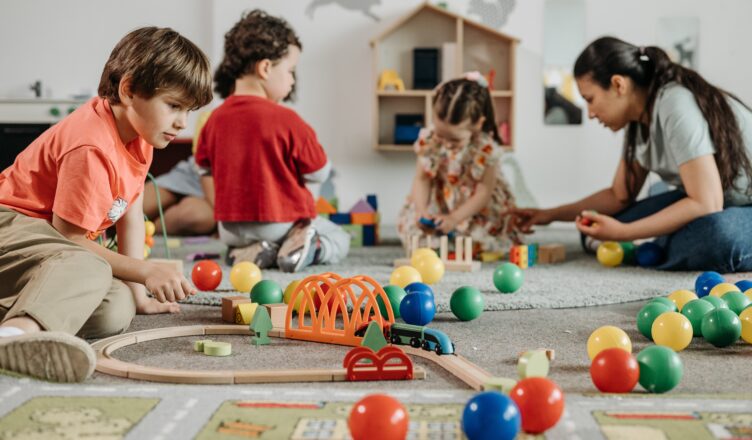Stumped by a riddle? Look no further! Here are some easy ones for you to ask around to your friends, loved ones, and anyone else that might know the answer.
What is a riddle?
Riddles are a type of puzzle that pose a question with an answer that is not immediately clear. They can be fun to solve and offer a unique way to think about problems. Riddles can be difficult for adults, but they are often easy for children.
Some classic riddles are “What has a head but no body?” and “How can you catch a chicken without its head?” These puzzles require readers to use their imagination to come up with possible solutions. Other riddles ask readers to identify objects or animals that have been modified in some way. For example, one riddle asks readers to identify a creature with two heads and four legs.
While most riddles are easy for children, some adults find them too difficult. This is because adults tend to take the answer at face value, whereas children may explore different possibilities before arriving at an answer. In order to make riddles easier for adults, some puzzlers will give hints or provide alternate solutions if the first one is not successful bugtong examples.
If you could take a piece of a puzzle and turn it so that all the pieces fit, what would be left?
This riddle is known as the Emperor’s New Clothes. It has been around for centuries, and no one has ever been able to come up with an answer.
Do you know the answer to this riddle?
If a boat has 10 people on it and 5 of them are sailors, how many sailors are on the boat?
The answer is 4.
Do you know the answer to this riddle?
Q: What has a head but no body, arms but no hands, and can’t speak?
A: A ghost.
What does the R in the word
Many people believe that adults are terrible at riddles, but this couldn’t be further from the truth. Adults can actually be quite good at solving riddles if they take the time to learn how to do so. In fact, there are many riddles that are specifically designed for adults and can be quite challenging.
One of the best ways to improve your ability to solve riddles is to practice frequently. The more you practice, the better you will become at figuring out solutions quickly and efficiently. Additionally, it is important to have a good knowledge of grammar and vocabulary when trying to solve riddles. This will help you understand the context in which the words are being used and allow you to come up with more creative solutions.
If you find yourself struggling with a particular riddle, don’t hesitate to ask a friend or family member for help. They may be able to provide alternative solutions that you hadn’t considered before. Overall, learning how to solve riddles is definitely an skill that can be improved with some hard work and dedication.
Are you a puzzle enthusiast? Do you love trying to figure out what the answer is to a riddle? If so, then you’re in luck! According to a study by The New York Times, adults are terrible at riddles. In fact, they’re only able to solve about one in four puzzles. But that doesn’t mean that kids aren’t great at solving them! Kids are able to solve riddles much more often than adults and this skill continues into adulthood. So if you’re looking for a fun way to spend your free time, try solving some puzzles!
Do you know the answer to this riddle?
If a boat has neither oars nor a motor, how does it move?
The boat moves with the current!
Do you know the answer to this riddle?
Answer: A man walks into a bar, orders a drink and leaves.
What was the drink he ordered?
Do you know the answer to this riddle? If a boat has five sails, how many are there if the boat has six sails? The answer is eleven.
Riddles are a classic form of amusement, and they can be difficult to solve. Adults are often terrible at them, but that doesn’t mean that you can’t enjoy a good riddle. Here are some tips for solving riddles:
1. Be patient. Riddles can take some time to solve, so don’t get frustrated if you don’t figure it out right away.
2. Look for clues. Sometimes the answer to a riddle is hidden in the wording itself, or in the context of the story or poem. Pay attention to how the words are used and look for any patterns or connections that might lead you closer to the answer.
3. Try different methods. Sometimes one approach won’t work, so try another method if you’re stuck. Maybe trying to think of an alternative solution will help you see what’s missing from your current approach.
4. Think outside the box. Sometimes the most obvious solutions aren’t actually the best ones, and you need to try something new to find what you’re looking for. If nothing else, this might lead you down a new path that leads closer to the answer – always worth a shot!
Do you know the answer to this riddle?
What has a mouth but never speaks, a heart that doesn’t beat and a head that doesn’t think?
A tombstone.
Can I have a nice cup of tea and some biscuits before we start with the next one?
If you’re like most adults, you’re terrible at riddles. But don’t worry, there are other ways to have fun! Here are four fun activities that are perfect for adults:
1) Make a fire and roast marshmallows.
2) Play charades.
3) Go on a treasure hunt.
4) Make a Pirate Ship out of cups and spoons.
If you’re like most adults, you have no idea how to solve riddles. But don’t worry, your child probably doesn’t either! In fact, a study done by the University of Utah found that only 5% of adults could solve a riddle that was given to them. Kids, on the other hand, scored an impressive 80% on the same test!
So why are adults so bad at solving riddles? It has something to do with our cognitive development. According to brain scientist and author Daniel Levitin, when we are kids we learn how to solve riddles through trial and error. We figure out what works and what doesn’t, and eventually we start to rely on these skills. By the time we reach adulthood, however, these skills have mostly disappeared.
That being said, there are still some things that you can do in order to help your child become better at solving riddles. Here are four tips:
1) Make sure they have plenty of practice solving them! A good way to do this is to give them puzzles or games that involve riddles every day. This will help their brains learn how to problem-solve quickly and efficiently.
2) Help them develop a “sixth sense” for solving riddles. This means teaching them not just how to solve a particular type of puzzle or game but also how to look for clues in order to

